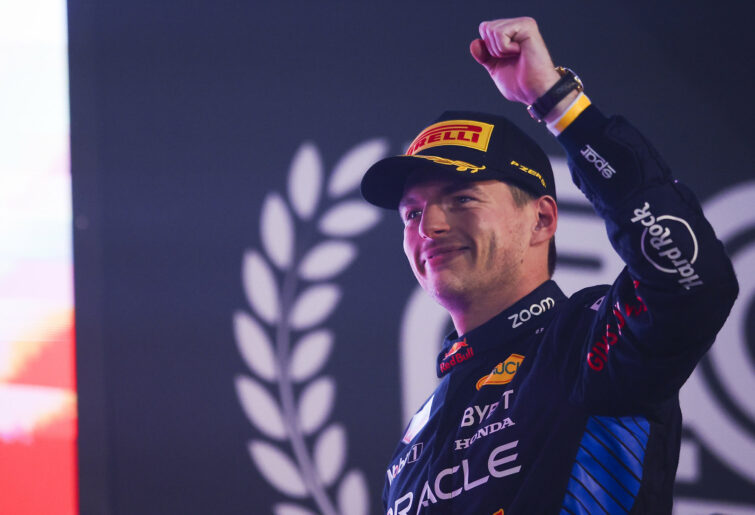There was an ominous sensation of deja vu and collective groans following the 2024 Formula One season opener, as reigning three-time world champion Max Verstappen cantered to a 22.4-second win at the Bahrain Grand Prix.
Given during the previous season, 26-year-old Verstappen romped to 19 wins – breaking his own all-time record for most wins in a season for an individual driver – as well as featured on the podium 21 out of 22 races and on his own outscored the second-best constructor, there’s no surprise to the adverse response to the Dutchman’s latest victory.
The processional rhetoric of the indomitable Verstappen and Red Bull combination, to be worn thin on even the freshest of fans, whose viewership and commitment Formula One has enjoyed grossly following the pandemic years.
Max Verstappen of Netherlands and Oracle Red Bull Racing celebrates after winning the F1 Grand Prix of Bahrain at Bahrain International Circuit. (Photo by Eric Alonso/Getty Images)
Though it’s easy to be consigned to the doom of the Red Bull rampancy and Verstappen to have already a hand around the championship trophy, it is too early to be hitting the panic button just yet.
It is difficult to picture a time in Formula One, when the right to supremacy wasn’t cyclical in nature. Before this latest run by Red Bull since the introduction of the ground-effect technical regulations, Mercedes had an eight-year stranglehold on the constructor’s championship – having mastered the V6 turbo-hybrid transition and subsequent aero regulation tweaks.
Only in the mid-to-late 2000s was there variation in the championship winners, between Ferrari’s domination with Michael Schumacher and before Red Bull’s initial glory years with Sebastian Vettel from 2010.
Comparison between eras and dynasties, while offering a pantheon for the aforementioned teams to sit in separate to those who’ve not achieved those dizzying heights, seems elementary given that the quality in performance between the eras grows from team to team.
Yes, while waxing lyrical and showing appreciation for the achievement of said dominant teams is not making the show any better, the only thing that will is continual development from the chasing pack. It cannot be stressed enough that interference from the sport’s governing body in the FIA or commercial rights holder Liberty Media to slow Red Bull down will be far more detrimental than the natural progression from the teams.
In the days preceding the cost cap, when blank checks could be readily thrown into development, it was rare to see an exponential leap from a team on the fringe of being a race winner to a bonafide title contender. Neither Ferrari nor Red Bull could, for various reasons, topple Mercedes before 2021 despite their vast resources.
Oracle Red Bull Racing RB20 at Bahrain International Circuit. (Photo by Mark Thompson/Getty Images
The drastic progress seen by Aston Martin and McLaren for example in 2023 at different stages – under the cost cap too – should provide optimism that with the right people in place, Red Bull can be beatable. However, that doesn’t account for the continual developments they are making – with the technical genius of Adrian Newey still spearheading them.
Sports opinion delivered daily
So while the sight of Verstappen doubling his victory margin from the Bahrain Grand Prix twelve months ago is disheartening, it is early days in what’s going to be the longest season of Formula One. Cycles have been broken and the best can be broken.
